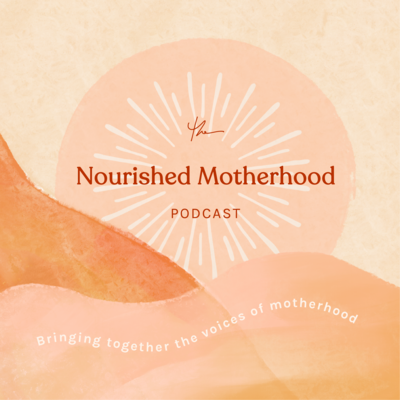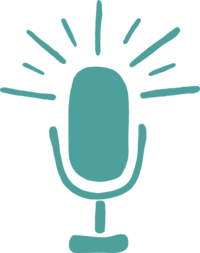October 7, 2021
Why Pelvic Floor Physical Therapy is Key to Thriving in Postpartum


In this episode, I want to introduce you to Pelvic Floor Physical Therapist, Melissa Sundberg. Melissa has been one of several key team members on my road to postpartum recovery. She has over twenty years of experience specializing in pelvic health. Melissa has helped clients overcome challenges with bowel and bladder control, diastasis recti, prolapse, pelvic pain, hip pain, and sexual dysfunction.
As a new mom, prioritizing your own physical care postpartum can feel downright impossible. There is so much to adjust to overnight! But if you’ve ever peed when you sneeze or cough, struggled with painful sex, diastasis recti, or prolapse, you know these conditions are not just inconvenient. They can absolutely disrupt your life.
What Melissa and I both want you to know is that there is both hope and support available when it comes to your pelvic floor. We'll dive into understanding what your pelvic floor is, and what it does, how we can prevent pelvic floor challenges for our kiddos. Then we'll cover what you can expect to accomplish with a pelvic floor physical therapist, and so much more.
Moments You Don’t Want to Miss
[3:37] Discover what your pelvic floor is and what it does
[7:00] Find out why you pee when you sneeze or cough and why it’s common but not normal
[17:01] Check out these tips for supporting your kids' pelvic floor health
[35:50] Learn some simple ways you can support your pelvic floor from home
[45:20] C-section or vaginal delivery: why a pelvic floor PT visit can help
Your Pelvic Floor: What is It & What Does It Do?
Kelly Jo: Can you talk a little bit more about what your pelvic floor is, what it does, why it's even important?
Melissa: Everybody has a pelvic floor - men and women. It is basically three layers of muscles that do a couple of different things with bowel, bladder, and sexual functions. So it helps us go to the bathroom. It also helps us keep and remain continent so that we're not leaking urine, gas, or stool. Additionally, it helps to support our pelvis and our hips, as well as our spine, and also it plays a big role in support.
So when we think about support, we need to think about supporting our organs and pelvis. We think about prolapse and how to maintain the fascial integrity of the pelvis. It also impacts our sexual function. If things aren't working well on our pelvic floor, we can see changes in sensation, experience pain, or changes in our orgasms.
Pelvic Floor Support for Tiny Humans
Kelly Jo: For parents of toddlers who are potty training, what can we do to help set our kids up for success?
Melissa: I think the biggest one is making sure that when they start potty training to have a good stool under their feet. It could be a little potty chair so their feet can be on the floor, or getting something like a squatty potty that allows them to put their feet solidly on the ground. Then they don't have to work quite so hard when they're sitting on the toilet.
Number two would be that if they are having issues like bedwetting or urinary incontinence, there are things to pay attention to. Many times parents are waking their kids up every two hours at night to go to the bathroom so they don't wet the bed. This of course affects everybody's sleep. A lot of the issues that we experience in this department are linked back to how their bowel movements are doing. For example, kids that are bedwetting are often constipated. Many times parents don't connect the two issues.
What to Expect in a Pelvic Floor Physical Therapy Session
Kelly Jo: So if someone's going to come and do pelvic floor physical therapy - obviously, that region is a really sensitive topic and it's very personal. What does it look like when someone comes in to work with a pelvic floor physical therapist? What are some of the different things a woman might experience in a session?
Melissa: Yeah, so typically for a first session, we take a pretty thorough dive into your physical history. I want to know about any other medical history, surgeries, injuries, even something as simple as an ankle sprain or a sports injury that happened as a teenager can affect your pelvic health and is helpful to know about.
The other thing is that we look at the general motion and mobility of your hips and back. Are you able to get up and down from the chair without having to change or modify things because of pain or tightness? We will also check for muscle strength and how you coordinate the muscles in your abdominals and around your hips and pelvis.
After birth, if moms are still having issues with bowel or bladder pain or they had a vaginal birth, they may have a scar. So we can do a pelvic floor muscle assessment where we assess those three layers of the muscles and keep an eye on the scar. I think the most helpful assessment I can offer patients is what’s happening when you do Kegels. About 74% of women are doing Kegel exercises incorrectly.
More From Melissa Sundberg


Melissa's interest in pelvic health peaked after the delivery of her daughter over 10 years ago. With extensive training in pelvic health, Melissa has become passionate about pelvic health and postpartum education.
Additionally, she maintains a special interest in treating women seeking pre- and post-natal physical therapy, female athletes, men and women with pelvic pain, and bowel dysfunction. She has been teaching a postpartum Pilates class for over 5 years, and loves to help moms return to daily activities and exercise with less pain and leaking. She uses a combination of skilled manual therapy techniques and specialized training in movement re-education.
One thing Melissa is passionate about is helping patients achieve their individual goals. She enjoys spending her free time running, hiking, cross country skiing, kayaking, fishing, and camping around Alaska with her husband, two children, and their labradoodle.
Links & Resources Mentioned
Rate, Review, & Follow on Apple Podcasts
If you’re loving these conversations, please consider rating and reviewing the podcast! This helps me support more women - just like you - find the grace, encouragement and support they need at every stage of motherhood.
If you have an iPhone, go to iTunes and leave a review!
Not sure how? Check out this video!






